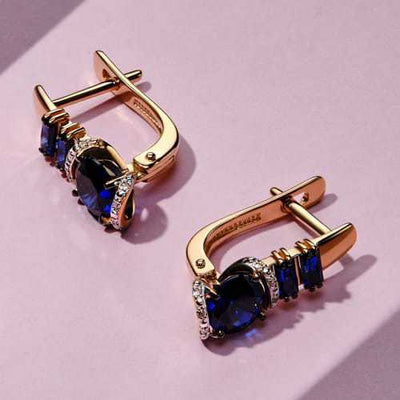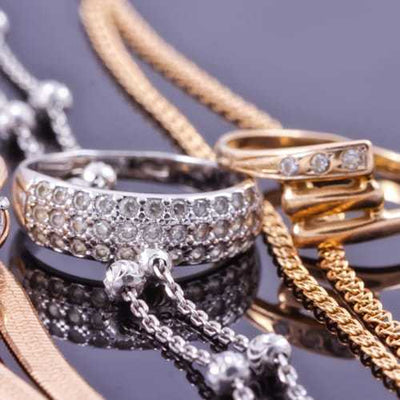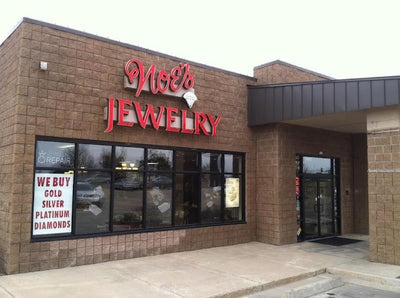Have you ever had to leave your jewelry at home because you were in too much of a rush to struggle with the clasps? Maybe you have that one piece of jewelry you wear absolutely everywhere–to school, the gym, and even in the shower. Or, maybe you’re the type of person who just seems to lose your jewelry, no matter how hard you try to keep track of it. If any of these scenarios sound familiar to you, it might be time to consider permanent jewelry!
Permanent jewelry may be the hottest thing on TikTok, but it’s much more than just a fleeting fad. It’s a new way to express yourself, capture precious memories, and create magical moments with your loved ones.
In this article, we’ll go over some of the most frequently asked questions about permanent jewelry. We’ll give you an overview of the process, dive into some common styles, and give you some pro tips for your own permanent jewelry experience!
What is permanent jewelry?
Permanent jewelry is any piece of jewelry that is welded together rather than being secured by a hook or clasp. Typically, the term refers to bracelets and anklets, but you can also find permanent rings and necklaces. Bracelets are currently the most popular style of permanent jewelry.
Permanent jewelry styles tend to be dainty and minimalistic chains. You can find chains in different metal colors (such as yellow gold, rose gold, white gold or silver). Permanent jewelry providers usually offer a variety of different link styles (such as curb links, cable links, and paperclip links) and chain gauges (thicknesses).
How does permanent jewelry work?
The process is simple, fast and painless. First, you’ll pick out the chain you want. A professional jeweler will measure out a length of chain to fit your wrist, ankle, neck or finger, depending on what type of jewelry you are getting. They will then put a protective barrier, such as a piece of fabric.
Using a small jewelry welder, your jeweler will quickly weld the ends of the chain together. You will likely hear a ‘zap’ and see a flash of light, but you won’t feel anything. The welding tools will not touch your skin at any point.
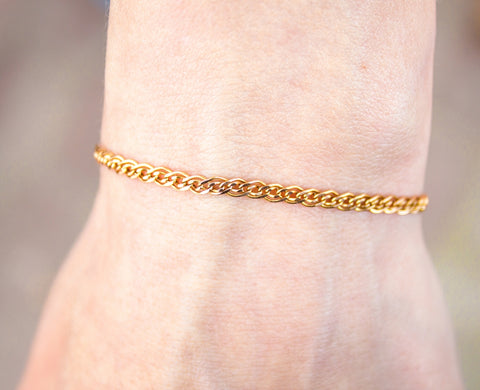
Is it safe?
The process is completely safe when performed by a professional jeweler. Jewelers have plenty of experience using tools like jewelry welders, and are familiar with safe handling procedures. In addition to having all of the necessary precautions and protocols in place, they will likely have higher quality jewelry than you can get in an online kit. Needless to say, we strongly advise getting your permanent jewelry done by a professional local jeweler.
Why get permanent jewelry?
People may decide to get permanent jewelry for many different reasons. Think of it like a grown-up version of a friendship bracelet: it’s a great way to keep a reminder of someone special close to your heart. Some people get it to commemorate a special event, like a birthday, anniversary, or graduation. Others get it as part of a group activity, such as a bachelorette party.
While it’s common to get permanent jewelry with family members, friends, or other loved ones, plenty of people get it on their own, too! You can mark a special occasion on your own, or show yourself some love by investing in a hassle-free piece of beautiful jewelry. It’s a fun, easy, and affordable way to celebrate the little things that make life special.
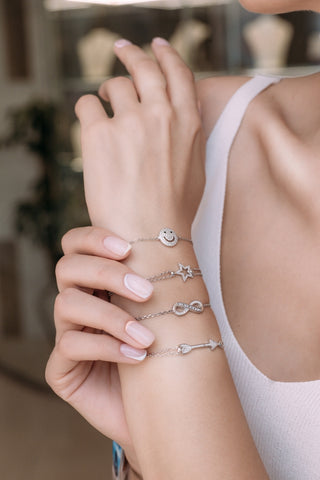
How long does permanent jewelry last?
With proper care, your jewelry can last for years. It’s designed to be worn daily and stand up to the rigors of your everyday life. However, it’s not indestructible. Like any jewelry, it is still susceptible to damage from hitting, bumping, snagging or sharp objects.
As long as it is made from quality materials, your jewelry should not tarnish. It should be fine to wear during light workouts, in the pool, in the shower, to school, or to any job that doesn’t involve heavy hands-on labor.
But if you live a very active lifestyle, permanent jewelry may not be the best choice for you. Consider your career and hobbies before deciding to get a permanent piece of your own. If you’re involved in lots of hands-on labor, participate in contact sports, or if your daily activities put your jewelry at risk of snagging or tearing, it is more likely to break off.
Can you wear permanent jewelry through airport security?
While we can’t make any absolute guarantees, it’s very unlikely your jewelry will slow down your travels. The TSA typically does not make passengers remove fine jewelry, so your permanent jewelry should not cause problems when going through airport security. On the off chance that your permanent bracelet, anklet, necklace or ring triggers a metal detector, TSA may require additional screening.
Can it be removed?
Yes! If for any reason you’d like to remove your jewelry, it can be removed–carefully–with scissors. If you’re too nervous to snip it on your own, your local jeweler will be happy to help you.
Before getting your jewelry, you may want to ask your jeweler about their removal and re-welding policies. Some jewelers offer one (or more) free reattachments in case your jewelry breaks or must be removed for any reason.
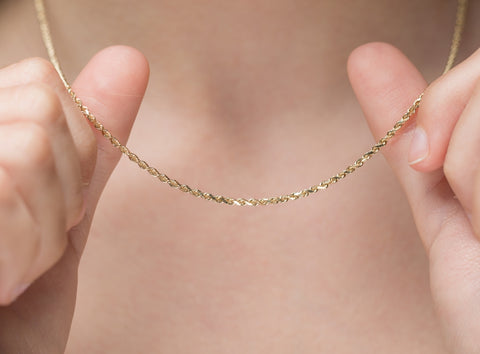
How much is permanent jewelry?
It depends on where you get it from, but most 14k gold options start around $100. Silver is usually less expensive. Most jewelers charge per inch of chain, so expect to pay more for a necklace than you would for a bracelet. If you have the option to add charms or other details, you will typically have to pay extra for those, as well.
Can you be allergic to permanent jewelry?
It’s uncommon, but it is possible. To make your experience safe, fun and enjoyable, we recommend asking your jeweler what metals they use in their permanent jewelry beforehand.
Reputable jewelers will most likely use 14k gold chains. This is a quality, durable metal that won’t tarnish, but it’s still possible to be allergic to it. That’s because 14k gold is an alloy, meaning that it contains trace amounts of other metals–some of which may cause a skin reaction in certain people.
If you’ve never worn 14k gold, consult a doctor or dermatologist first. They can help you safely determine whether or not you have an allergy. If you do, that doesn’t mean you’re out of luck. You might need to find a permanent jewelry provider who offers 18k or 24k gold chains, or choose another metal altogether (like silver). The extra step may be a hassle, but it’s better than paying for a permanent bracelet that just ends up giving you an itchy rash.
Permanent Jewelry in Kansas City
Ready to try it out for yourself? Come pay us a visit at Noe’s Jewelry in Raymore, Missouri! Our team of permanent jewelry pros is experienced and excited to help you get ‘linked,’ whether it’s with a friend, a group, or on your own.


